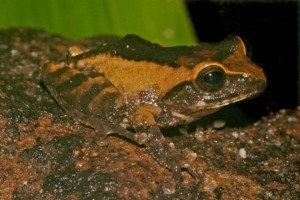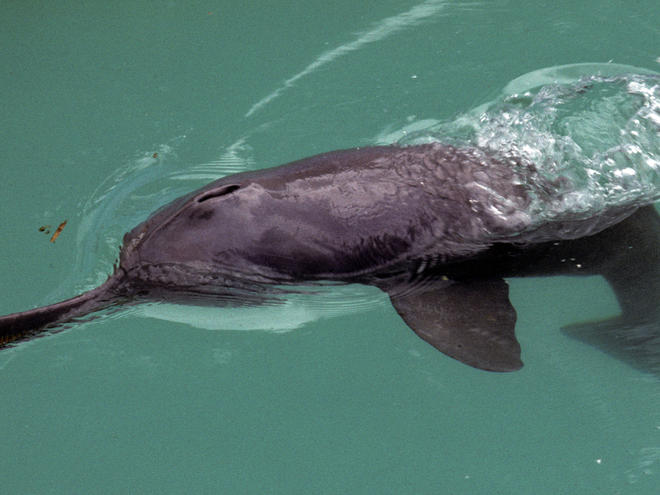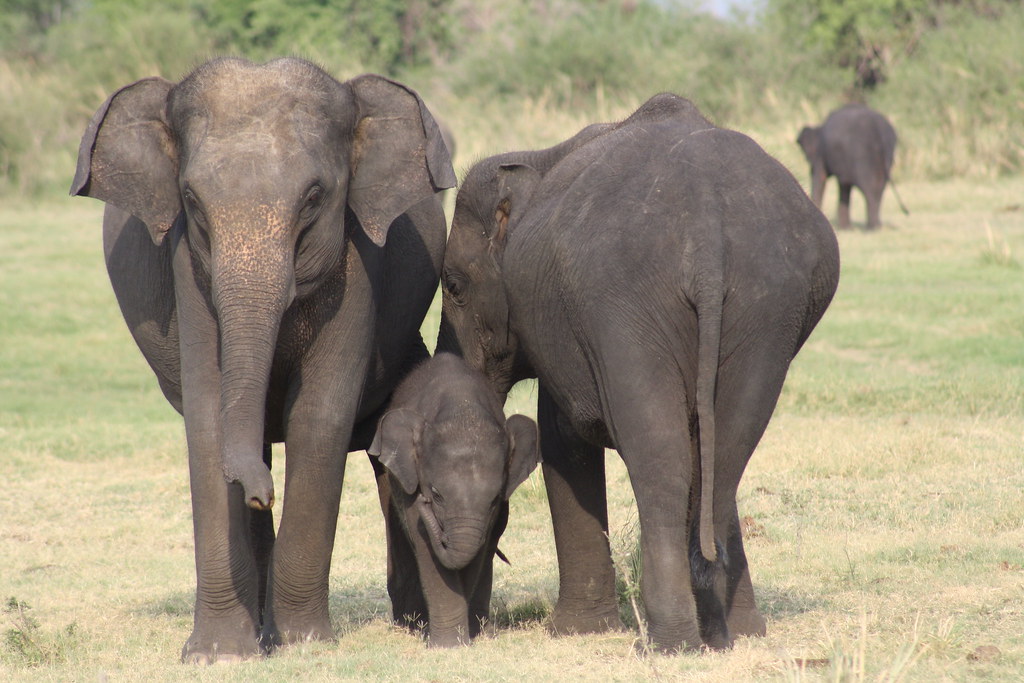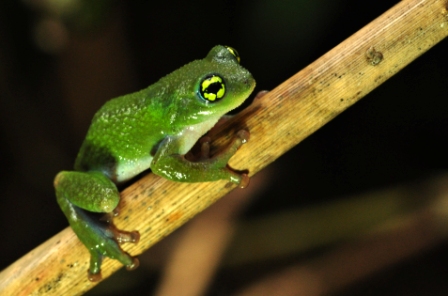
Discovery of new frog species at the Western Ghats of India has further strengthened the claim that these Ghats are the heart of biodiversity. While frog species round the world are driven to extinction due to habitat destruction, pollution, climate change and of late, much sought frog legs, the discovery of new frog species is refreshing news. The expedition in the Ghats was carried out by biodiversity researches, voluntary researches and nature enthusiasts without any funding from agencies and they succeeded in discovering ten new frog species.
Biosystamatica, an international journal on animal taxonomy, ecology and zoo-geography, lists the findings of new frog species in its latest issue. The research team led by Dr.Anil Zachariah from the department of animal husbandry included other voluntary researchers and naturalists with Zoological Survey of India taking an active role. The other members of research team consisted of K.P.Dinesh, C.Radhakrishnan, Sandeep Das, C.K.Vishnudas, David V Raju, Muhamed Jafer Palot, S.Kalesh and Prof. E. Kunhikrishnan.
About the New Frog Species
Nine species were found in the hilly ranges of southern Western Ghats that belonged to Raorchestes genus and one species to Polypedates genus (Rhacophoridae family). According to Dr.Anil Zachariah, the genus Raorchestes is found only in the Western Ghats with 30 species discovered until 2010. But the discovery of new species of frogs coming under the family Rhacophoridae, and genus Polypedates, has brought the number of species to four in Western Ghats and to a total of 11 in India, till date.
Of the nine species one is a canopy bush frog, two of the species are Bamboo reeds and six are bush frogs. They were discovered in Ooty, one from Naduvattam, Nilgiris, one from Gavi, pathanamthitta district, two from Kadalar estate, Idukki and four of the species were from Bonacaud, Thiruvananthapuram district.
Most of the new species have been named after the people behind the discovery or other eminent biologists. These are,
Raorchestes Manohari – T.M.Manoharan, Principal Chief Conservator of forests, Kerala
Polypedates bijui – Dr. S.D.Biju, Delhi University.
Raorchestes theuerkaufi – Wolfgang Theuerkauf, Naturalist and Botanist, Director of Gurukula Botanical Garden, Periya, Wayanad, Kerala.
Raorchestes ravii – Ravi Chandran (late) was a nature lover from Wayanad who accompanied the research team in expeditions and was the first who found the species.
Raorchestes agasthyaensis – Agasthyamalai is the locality and integral part of the Agastyamalai Biosphere Reserve.
Raorchestes thodai – found in Ooty, is named after the indigenous tribal community ‘thoda’ of Nilgiris
Raorchestes crustai – the Latin word ‘crusta’ means ‘bark’ which is the preferred microhabitat of this canopy frog.
Raorchestes uthamani – Bird photographer P.K. Uthaman and Forest officer K.V Uthaman both are eminent conservationists. These are pinkish yellow bush frogs inhabiting the high altitude reed patches (1000m)
Raorchestes johnceei – late Prof. John C. Jacob or ‘Johncee’ as he was popularly known.
Raorchestes kadalarensis – referring to the locality ‘Kadalar’.
Considering that the research study was not funded but was fuelled by just the passion of these nature enthusiasts, it is a commendable achievement. The discovery of the new frog species is also a pointer to the fact that there are many more species in the offing, waiting to be discovered in the Western Ghats. A continued effort by such research team and conservationists is bound to yield positive results.
Related Stories:
Increased frog Leg Demand Pushing Amphibians to Extinction
Researchers Rediscover Five Lost Frog Species
Scientists plan to Create a Virtual Fence to save Forest Animals
Article reference: The Hindu





Once again the team led by Dr. Zacharia proved that the Western Ghats is a vavilonian centre of biodiversity .The study was conducted without any funding from any agencies indicated the mind of a real researcher and true naturalist. These kinds of findings bring even a layman into the miracle of science. In spite of all, i am very happy to say that one of the members of the team (Sandeep Das) is my post graduate student (Farook College, calicut, Kerala), Once again congratulating the team and expecting more and more contributions to the science world
You are right Dr. Hameed. It is the sheer sense of curiosity and passion for science that has led the hardworking team to make the discoveries in spite of no funding from any agencies. the news is encouraging. I am glad to know that one of the researchers is your student. You must be very proud of his achievements. Thanks for your comment.